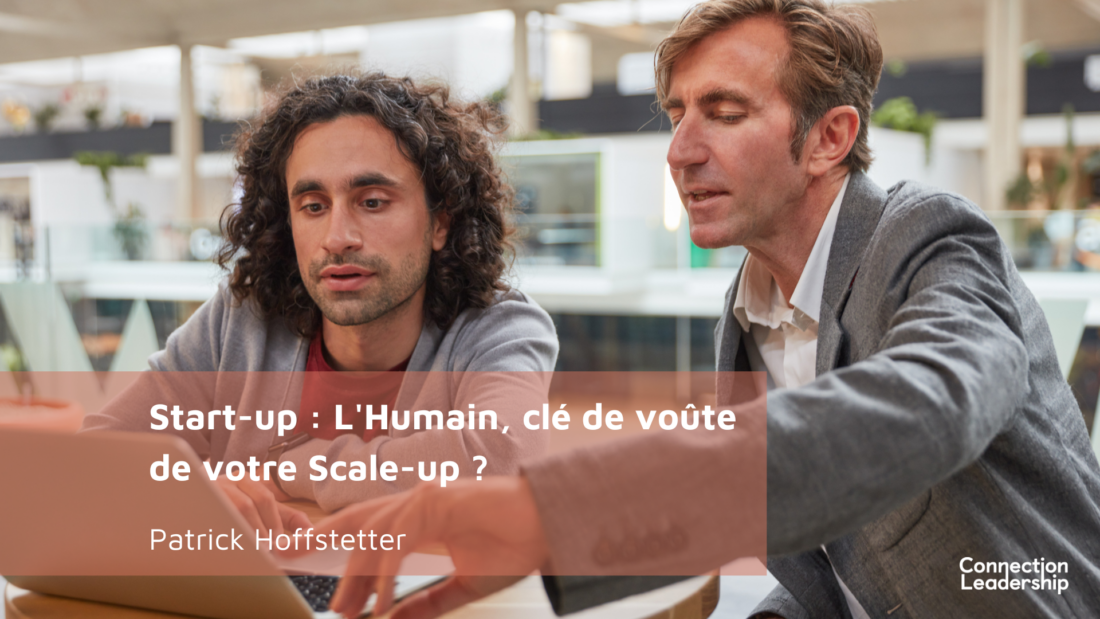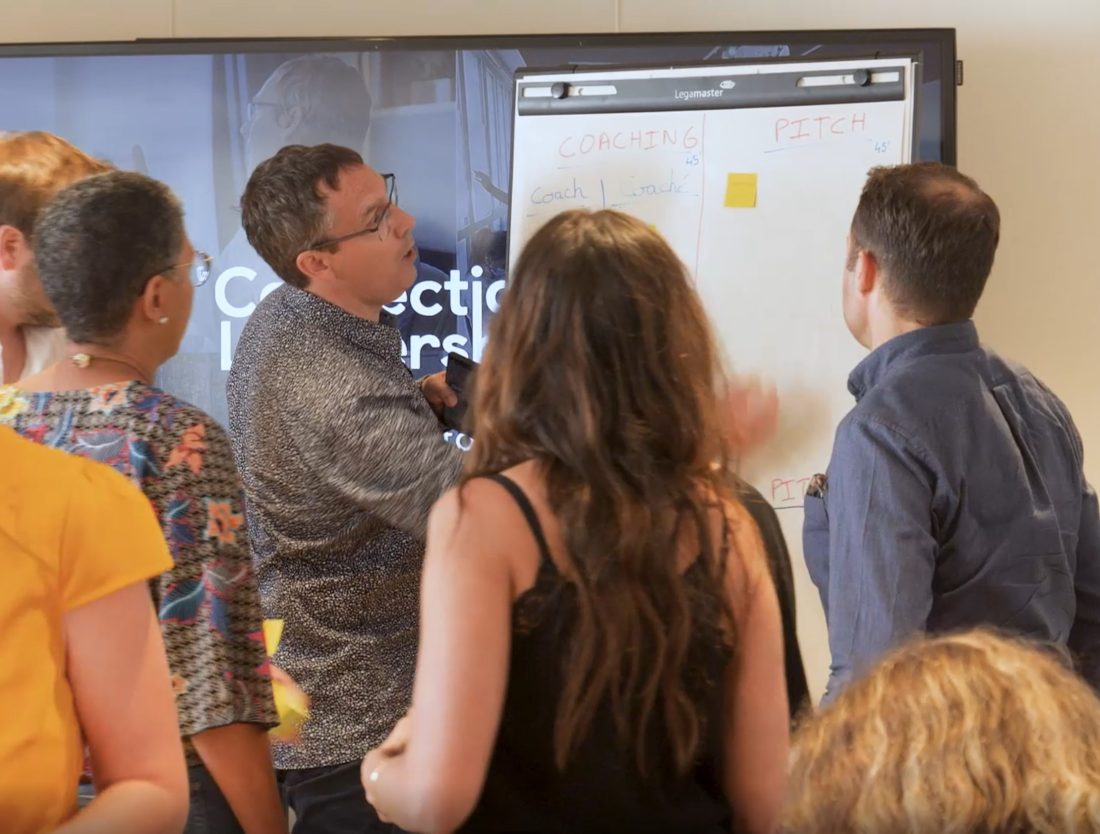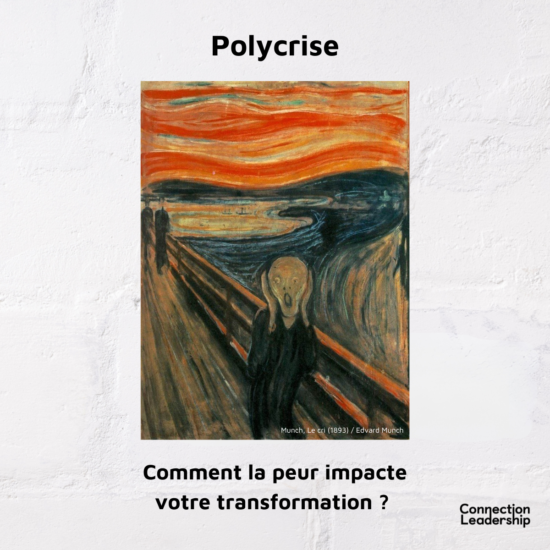
Social relations in the workplace: what if we stopped focusing on conflicts?
Social relations are a key element in the dynamics of any organization. However, they are often studied in terms of conflict, and seen as a source of inevitable tension.

Une croissance rapide est à la fois stimulante et cruciale pour toute entreprise en développement. But as your organization prepares to reach new heights, it’s essential that success is based not just on technical decisions and processes, but on a global, holistic approach that takes into account people, their environment and their interconnections.
While rapid growth has long been considered the ultimate sign of success for start-ups, the perspective is changing. As explained in an article entitled “Will investors abandon unicorns in favor of centaurs?“, investors and executives are increasingly focusing on long-term profitability rather than often unsustainable exponential growth. It is therefore essential for start-ups to strive for a balance between growth and profitability.
While in the beginning it’s tolerable – even interesting – to move forward in a “messy and strappy” way, structuring the company becomes crucial when it’s time to “scaler“. En effet, la méthode qui a initialement conduit au succès est rarement garante d’une croissance durable.
It is then essential to step back, evaluate and compare the current situation with the objectives to be achieved: is the product adaptable to a larger scale? Are the necessary technical resources and human skills available?
We’ll need to provide support in terms of revealing the people in place, reorganizing the organization chart, and setting up processes and automation. The good news here is that startups are already accustomed to an environment in perpetual transformation, and face less inertia than large companies, which is an advantage in terms of responsiveness.
A survey of 869 early-stage start-up managers reveals that their main concerns are recruiting new talent, followed closely by the evolution of the company’s culture. However, when asked how they spend their time on a day-to-day basis, they admit that most of their activities are devoted to product development and management. In fact, a third of them admit to devoting more than 30% of their time to it, whereas recruitment only takes up 20% of their working time.
And yet the human aspects are just as crucial. The example of the “Balance ta start-up” movement, which shook up French Tech in 2021 by highlighting anonymous testimonials denouncing abusive managerial practices within these young companies, is a striking illustration. The youth of the teams, the lack of experience, the lack of structure, may have led to the mirage that no conscious effort was needed to cultivate the human side. However, a company becomes “human” because it has chosen it, cultivated it, and maintained a certain rigor in social relations over time.
Our main message is as follows: if you don’t integrate these essential elements during the transition phase of your scale-up, you’ll be scaling up your problems. So it’s crucial to reinforce alignment around the new objectives and roadmap, placing the company’s values at the heart of every decision.


Start-up managers face unique pressures, because unlike in large companies, where pressure can be diffused through multiple hierarchical levels, in a start-up every decision and action on their part can have an immediate and significant impact on the company’s success or failure.
Managers have to juggle multiple tasks under tight deadlines, especially in areas where they are not experts. It is therefore essential for them to recognize their limits and be ready to seek help when needed.
Accepting one’s own vulnerability and actively seeking support can not only help overcome individual challenges, but also strengthen the cohesion and resilience of the whole team. In this process, the leader learns to be responsible for the result, while not being the one to deliver everything, thus forging trust within the team.
OKR (Objectives and Key Results) strategy workshops clarify long-term objectives and break them down into measurable key results, facilitating rigorous progress monitoring. The OKR method is particularly useful for aligning team efforts with the company’s overall vision, encouraging each member to make a significant contribution to the achievement of common goals.
The use of the RACI (Responsible, Accountable, Consulted, Informed) model, meanwhile, clarifies roles and responsibilities in projects, ensuring that every action and decision is taken into consideration by the right people. This reduces confusion and overlapping responsibilities, optimizing operational efficiency.
These workshops are part of the Ninja School of Transformation program, an initiative that encourages innovation and the testing of new ideas without fear of failure, a crucial aspect in the fast-paced and often unpredictable environment of startups. The Ninja program helps establish a culture of continuous learning and adaptability, and enables managers to understand what posture to adopt, and how to contribute to scale-up success.
In addition, the establishment of good governance bodies provides a framework and guarantees that operations are carried out successfully, reinforcing the confidence of investors, customers and employees.
As such, these practices are not simply management tools, but essential pillars for building a resilient and adaptive organization, ready to grow sustainably in a competitive market.
Although many entrepreneurs are accustomed to a “do-it-yourself” mentality, the use of coaching can provide invaluable support in such a demanding environment. Simply stepping back and having a safe bubble to discuss your concerns can have a huge impact on clarity and decision making.
By providing a space to verbalize problems and explore solutions, coaching can help managers identify invisible obstacles and develop concrete action plans.
What’s more, start-up coaching is not limited to solving immediate problems, but aims to strengthen the skills and resilience of managers and their teams to successfully navigate an ever-changing environment. It’s an investment in human capital that can lead to results and sustainable corporate growth.
Have you created your start-up and achieved your first successes? Do you want to ensure the long-term future of your business and build tomorrow’s model, while retaining the spirit, dynamism, adaptability and capacity for innovation of a start-up? Your challenge is to preserve your DNA, develop a growth strategy in line with your ambitions and develop your leadership skills to get your teams on board?
With our Unicorn Factory, we support you in maintaining the balance between your corporate culture and the transformations necessary for continued growth.
More than a consulting firm, Connection Leadership is your partner in holistic transformation. Our approach, based on transversality and pragmatism, brings you all the necessary elements to co-construct the transformation of your company. This co-construction is carried out with all levels of the company to improve collective commitment. Our coaching and transformation programs are designed to bring impact and concrete results, ultimately empowering you in your transformation.

Social relations are a key element in the dynamics of any organization. However, they are often studied in terms of conflict, and seen as a source of inevitable tension.

In an ever-changing world, where companies are faced with increasingly complex challenges, it is essential to develop innovative approaches to effectively support their transformation. The systemic approach is proving to be a powerful tool

While the tertiary sector dominates the media, industry remains an essential pillar of the French landscape.
Paint, coatings, metallurgy… On a daily basis, many industries connect us to the world and to age-old know-how.

In the frenzy of our modern daily lives, testimonies are multiplying: burn-outs, strokes, bodies pushed to their limits…
This raises a crucial question: are these cases the obvious result of a mismatch between the way we work and our fundamental needs?

In a constantly changing world, marked by the complex workings of the 4th industrial revolution and the growing urgency of the ecological and energy transition, the challenges facing companies are more numerous than ever.

Where the concept VUCA (Volatile, Uncertain, Complex, Ambiguous) has long been used to describe this ever-changing world, another term, “polycrisis”, evoked by sociologist and philosopher Edgar Morin, now finds particular resonance.